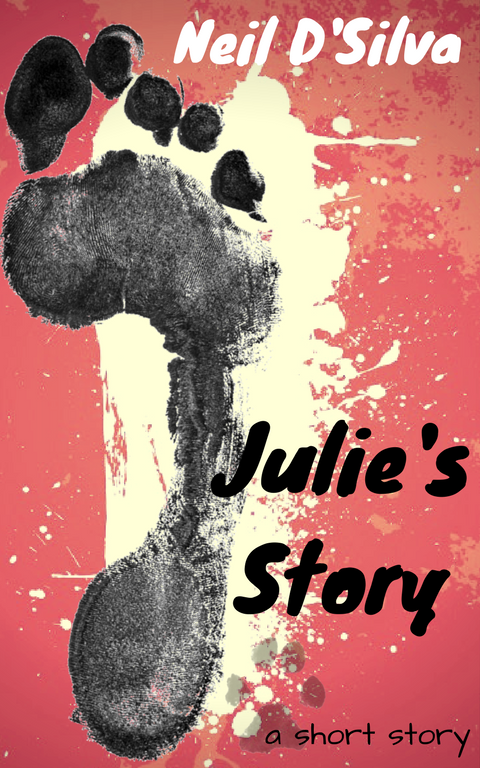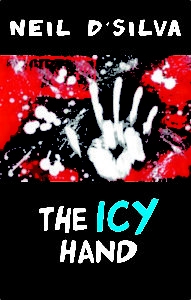 When she landed at her father’s doorstep in the hour of darkness, all haggard and grey, he looked at her with some worry. In all these years, she hadn’t bothered him. He realized that something was amiss and he waited for her to start the conversation.
When she landed at her father’s doorstep in the hour of darkness, all haggard and grey, he looked at her with some worry. In all these years, she hadn’t bothered him. He realized that something was amiss and he waited for her to start the conversation.
“Why are you so surprised to see me, father?” she asked.
He opened the door wide so that she could enter his lavish house. The house was spotlessly white all over, and if one opened the windows, they could see the clouds outside.
“Something is bothering you,” he said when she had settled down in one of the high-backed chairs reserved for guests.
“Father, I have come with a request.” There was great solemnity in her voice.
Even as she said that, he saw that her face was full of wrinkles. She was much younger than he was, but physically she looked much older. The wrinkles on her face weren’t just marks of withering time; they were mute remnants of the various struggles of her life.
“What is it?” he asked.
“I want to be born again.”
“What?” he said, his eyes going round with the shock. “What nonsense is that?”
“I want to end this, father,” she said, “and be revived. I know it can happen. I know you can do that. Haven’t you done that with others too?”
“Preposterous!” the old man said. “I don’t have any powers of bestowing rebirth. And thinking of ending your life is a sin. Why would you want that?”
She looked away from his angry face and at the floor. She looked at the carpets. They were so soft that they seemed to move under her feet.
“It is my children,” she said, carefully measuring her words. “I am burdened by my children and their ways.”
“But weren’t you proud of your children once?” he asked.
“I was,” the woman replied. “They were once the light of my eyes. They protected my dignity and honor. They were willing to lay down their lives for me. They were with me during our hard times together. But, today, things have changed.”
“What has changed?”
“My children have grown. They have become independent, but they don’t realize the true meaning of these privileges. They dishonor me at every instant. They say things that hurt my bosom, the very bosom that has fed them.”
“Children do that when they grow up,” the father said. “Mothers don’t decide to end their lives for that.”
“There is more,” she said. “They fight among each other. When they were growing up, they were one. But now they believe in different things. There is hate and suspicion and fear. I am worried they may sell our house and throw me into the street. Where would I go if that happens, father? Mine is the only house I know.”
“You are needlessly worried. All this will pass,” the father said, proceeding to open the window.
“No, this is not reasonless worry,” she said, getting up too and following him. “All my sons aren’t bestowed with the same level of intelligence. I worry that my foolish sons will one day terminate my intelligent ones. And then will the foolish ones be able to sustain themselves? I don’t want to see my children killing each other. Their greed and selfishness will only lead to self-destruction. I don’t want to be wiped off the face of the earth, father.”
“What about their father? Why don’t you speak with him?”
She looked the other way. “You know about him, father,” she said. “He is too busy looking at the affairs of the world to bother about what happens inside his own house. But maybe that is the right way to be. Maybe I should have made my children learn about the outside world too, instead of protecting and sheltering them in this manner. If only they had gone out a little, experienced the life outside, even got hurt a little, they would not have turned upon each other.”
She came closer to the old man and held his arm.
“You will do it, won’t you, father?” she said. “I know you will. I know you can. Let me end my life now. Won’t I be reborn with a clean slate, a tabula rasa? That will be good for everyone, won’t it?”
The old man shook his head at the inanity of her request. He opened the window. Outside, the dawn had just broken out. He looked at the sky and a smile lit up his face. He knew what he should tell his suicidal daughter.
“Look at that,” he said, pointing at the sun that was playing peekaboo with the distant horizon. “Look at the sun. Do you think he hasn’t seen enough trials and tribulations the previous day? You look only at the problems of your house, but he sees the problems of the entire world. He sees the rioting, the genocide, the massacres, the terrorism, and still he hopefully rises again each day. He comes up with a mild light, as though he is testing the waters, like people do when they are about to enter a strange house. But he never goes back. He always enters the house—the sky—and bestows everyone with his resplendent offerings. He decides to rise. It is his optimism that sustains the earth, isn’t it? If he weren’t optimistic, if he forgot his role in the scheme of things, would anything exist?”
He took her back to her seat and sat next to her. “The sun is an example of giving,” he said to his daughter, wiping her tears. “You have to be like the sun.”
“These problems happen in every house,” the old sage continued. “Parents do not decide to end their lives at that. They live through, shine for their children, give them support, and one day, the children see the folly of their ways. The sun will rise in your house too, mark my words, and in the light of that rising sun, your house will become the strongest house of all.”
“Will that happen?” she said, choking back her tears.
“Yes, it will; and now you must rise.”
Having drunk the nectar of her father’s encouraging words, she rose, and absentmindedly smoothened the creases on her three-colored sari.
“Now that’s a good girl,” the father said. “Go, then, my dearest daughter! Go ahead. Live on for another day. Spread the power of your strength to your children, and they will come out of their vices. They will stop fighting with each other for their personal gains and stand united. The sun shall rise resplendent and glorious in your house too. It will happen.”
And, wiping her tears, India left her father’s house to descend back to earth and claim her rightful place under the sun.
END




